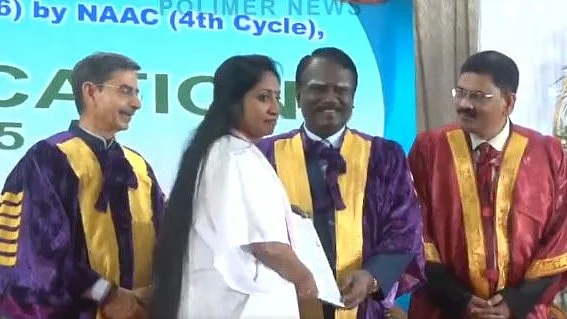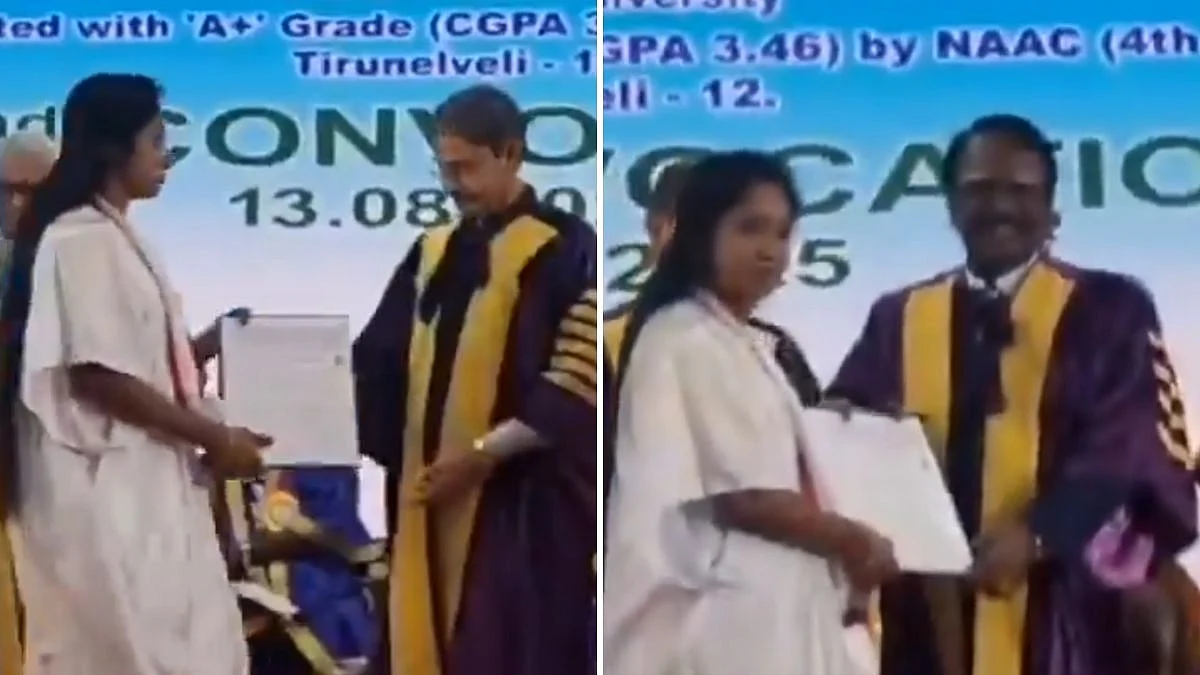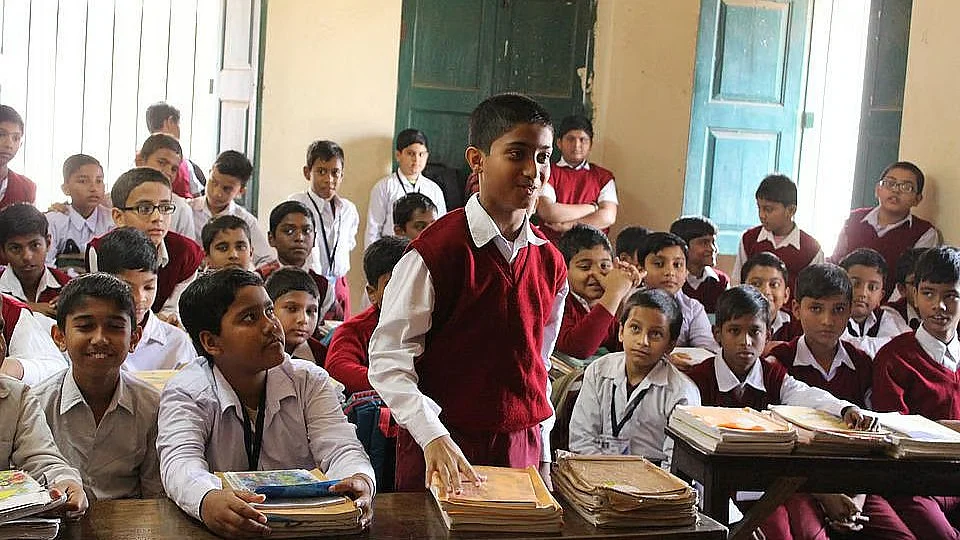Chennai (Tamil Nadu), August 13: A tense moment marked the 32nd convocation of Manonmaniam Sundaranar University (MSU) in Tirunelveli on Wednesday, when PhD graduate Jean Joseph from Nagercoil refused to receive her degree from Tamil Nadu Governor and University Chancellor R.N. Ravi, choosing instead to bypass him and accept it directly from Vice-Chancellor N. Chandrasekar.
Who Is R.N. Ravi?
Ravindra Narayana Ravi, better known as R. N. Ravi, has lived a life at the intersection of security, politics, and controversy. Born on April 3, 1952, in Patna, Bihar, he earned his Master’s degree in Physics in 1947. His early career took a. brief detour into journalism before he joined the Indian Police Service in 1969, assigned to the Kerala cadre.
In Kerala, Ravi spent over a decade in a district posting before moving into the national security arena. As an officer in the Central Bureau of Investigation (CBI), he led major anti-corruption drives, taking on powerful organised crime networks, including the mining mafia. His later years in the Intelligence Bureau (IB) were marked by deep involvement in India’s most troubled regions, Jammu & Kashmir, the insurgency-hit – hit Northeast, and Maoist strongholds. He became known for his work in conflict resolution, persuading armed groups to lay down arms and join peace processes.
Ravi also specialised in the political sociology of border regions and the complex patterns of human migration in South Asia. He played a key role in building India’s international counter-terrorism and intelligence sharing partnerships. After retiring from government service in 2012, he wrote columns in national newspapers, often on security and strategic affairs.
In August 2014, the Centre appointed him as its interlocutor for the Naga peace talks. Ravi changed the course of negotiations, bringing discussions from foreign capitals back to the ground in Nagaland and involving all stakeholders. His efforts resulted in agreements with multiple rebel groups, raising hopes of ending a decades-long insurgency. In October 2018, he was named Deputy National Security Advisor.
Ravi’s entry into gubernatorial roles came in August 2019, when he became the Governor of Nagaland. He briefly held additional charge as Governor of Meghalaya in 2019 – 2020. On September 18, 2021, he took over as the 26th Governor of Tamil Nadu.
It is in Tamil Nadu that Ravi’s tenure has become highly contentious. Chief Minister M. K. Stalin has repeatedly accused him of acting in a “dictatorial” manner, citing delays in granting assent to bills passed by the state assembly. The standoff grew so sharp that the assembly passed a resolution urging the Centre to set deadlines for governors to clear legislation. The dispute culminated in a landmark Supreme Court ruling, The State of Tamil Nadu v. The Governor of Tamil Nadu, which mandated time limits for governors to act on bills.
From the intelligence shadows to the bright and often harsh glare of state politics, R.N. Ravi’s career has been anything but ordinary. Whether tackling insurgency in the Northeast or navigating the political storm in Tamil Nadu, he has remained a figure who commands attention and debate.
From the intelligence shadows to the bright and often harsh glare of state politics, R. N. Ravi’s career has been anything but ordinary. Whether tackling insurgency in the Northeast or navigating the political storm in Tamil Nadu, he has remained a figure who commands attention and debate.











